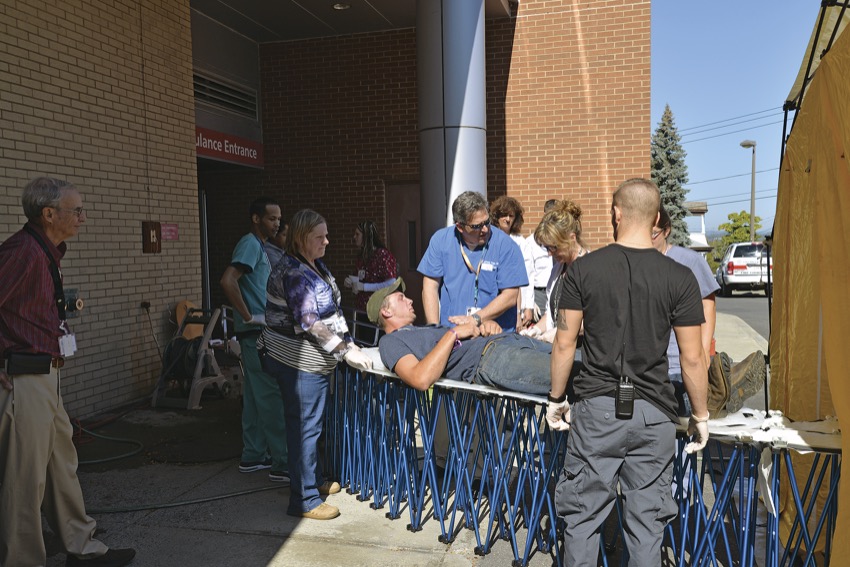Urgent care
Michael Weisberg ’93 heads emergency department at N.Y. hospital
Of the many areas in medicine, Dr. Michael Weisberg ’93 chose one of the most difficult—and consequential—to study and dedicate his professional life to: emergency medicine.
“I’ve always enjoyed the fast pace and excitement, and working in a place where I can impact a lot of patients,” Weisberg said. “I like that you see something new every day.”
His career in emergency medicine has spanned more than a decade. In July 2016, he was promoted to director of the emergency department at Columbia Memorial Hospital, which is located in Hudson, N.Y.
In this role, Weisberg oversees the care of the approximately 45,000 patients who visit the hospital’s emergency room and associated urgent care centers annually. The hospital provides advanced surgery, primary care services and patient education.
His many responsibilities include overseeing physicians, physician assistants, nurse practitioners, students and others. While his role involves administrative work, he dedicates at least 50 percent of his job to direct care.
“I will never not do clinical care. I went into medicine to take care of patients,” he said.

Weisberg’s interest in medicine began at a young age, in part due to the influence of his family. Both his brother and father are physicians. “From as early as I can remember, I had wanted to be a doctor,” he said.
Throughout his youth, Weisberg spent his summer vacations working in hospitals, including as a nurse’s aide in the emergency department.
At Wheaton, Weisberg majored in biology with a minor in political science. He went on to study medicine at the Universidad Autonoma de Guadalajara in Mexico and New York Medical College.
In Guadalajara, “I got to experience a different culture and learn a second language. Also, I had to learn to do my job with less technology,” he said. “You couldn’t just order a CT scan, you had to rely on your skills. This experience really dictated the kind of physician I am, and made me work harder and appreciate what I have.”
He said the well-rounded education he received at Wheaton helps him in his work.
“It enables me to develop a view of the world other than just plain science, which is the focus of medical school,” Weisberg said.
His political science and economic courses help him better understand the nuances of health care policy, which he grapples with every day.
Weisberg fondly recalls political science courses with the late professor Jay Goodman. He also loved his biology courses, including “Genetics,” which he took with Professor of Biology Betsey Dyer.
The professor recalls Weisberg as an A+ student. “As always, we had an intensive fruit fly lab, which required six weeks of independent work. Not all students have an affinity for the intricacies of fly work, but Michael did very well in fly lab: 100 on his final report. That’s an indicator of a student who attends to details and is willing to work long hours to get things right,” she said.
Weisberg notes that many of his closest friends are his classmates from Wheaton; he was even the best man at his roommate’s wedding. Most important of those friends, to him, is Erin Monahan Weisberg ’93, with whom he reconnected during his 10th Reunion at Wheaton. They married two years later and now have two children.
Working in a high-stress, crisis job like emergency medicine may not be glamorous, but it is rewarding. “Whether I get recognition or not means nothing. I go home knowing I made a difference in someone’s life,” he said.
